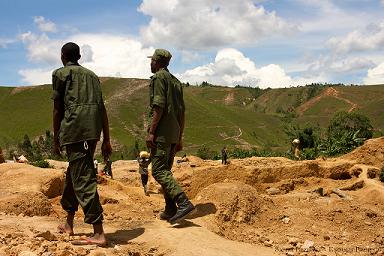
GOMA, Eastern Congo— Whether within rebel groups and militias or the Congolese national army, or FARDC, senior commanders continue to benefit from Congo’s lucrative mineral trade. Striking examples of this trend are the staggering lifestyle and investments of some Congolese army officers here in the Kivus. Although official army salaries top out at 90,000 Congolese francs per month, less than $100, many Congolese generals and colonels own gas stations, run minerals exporters or ‘comptoirs’, and new buildings are sprouting up like mushrooms throughout cities of Goma, Bukavu, Butembo, Bunia, and Kinshasa.

